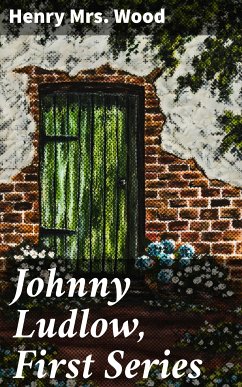
Johnny Ludlow, Fourth Series (eBook, ePUB)
Exploring Victorian Lives Through Character-Driven Stories
Versandkostenfrei!
Sofort per Download lieferbar
0,49 €
inkl. MwSt.
Weitere Ausgaben:

PAYBACK Punkte
0 °P sammeln!
In "Johnny Ludlow, Fourth Series," Henry Mrs. Wood continues the compelling narrative of the eponymous young protagonist, capturing the intricacies of Victorian life through an engaging blend of realism and sentimentality. The fourth series comprises a collection of interconnected stories that delve into themes of social stratification, morality, and personal growth, employing a distinctively descriptive literary style that immerses readers in the richly textured landscapes of 19th-century England. Wood's use of first-person narration allows an intimate exploration of Johnny's experiences, fos...
In "Johnny Ludlow, Fourth Series," Henry Mrs. Wood continues the compelling narrative of the eponymous young protagonist, capturing the intricacies of Victorian life through an engaging blend of realism and sentimentality. The fourth series comprises a collection of interconnected stories that delve into themes of social stratification, morality, and personal growth, employing a distinctively descriptive literary style that immerses readers in the richly textured landscapes of 19th-century England. Wood's use of first-person narration allows an intimate exploration of Johnny's experiences, fostering a deep connection to the character's evolving understanding of the world around him. Henry Mrs. Wood, a prominent figure in Victorian literature, drew upon her own experiences and social observations to craft narratives that resonate with contemporary readers. Raised in a literary household, her insights into society's complexities and the psychological struggles of her characters stemmed from her own reflections on marriage, family, and gender roles. Her keen understanding of social dynamics is evidenced in the nuanced portrayals of her characters, which likely inspired her to write "Johnny Ludlow" as a semi-autobiographical reflection of her own youthful adventures. This collection is a must-read for those interested in Victorian literature and the evolution of young adult fiction. Wood'Äôs stories are adeptly woven with moral lessons and captivating plots that continue to engage and resonate with modern audiences. Readers will find in "Johnny Ludlow, Fourth Series" a rich tapestry of human experience that invites contemplation and empathy.
Dieser Download kann aus rechtlichen Gründen nur mit Rechnungsadresse in A, B, BG, CY, CZ, D, DK, EW, E, FIN, F, GR, H, IRL, I, LT, L, LR, M, NL, PL, P, R, S, SLO, SK ausgeliefert werden.













